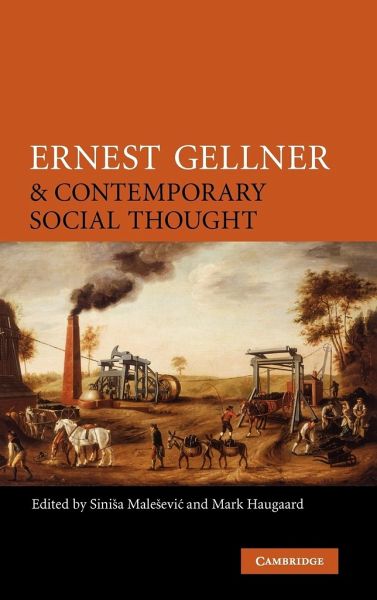
Ernest Gellner and Contemporary Social Thought

PAYBACK Punkte
55 °P sammeln!
Ernest Gellner was a unique scholar whose work covered areas as diverse as social anthropology, analytical philosophy, the sociology of the Islamic world, nationalism, psychoanalysis, East European transformations and kinship structures. Despite this diversity, there is an exceptional degree of unity and coherence in Gellner's work with his distinctly modernist, rationalist and liberal world-view evident in everything he wrote. His central problematic remains constant: understanding how the modern world came into being and to what extent it is unique relative to all other social forms. Ten yea...
Ernest Gellner was a unique scholar whose work covered areas as diverse as social anthropology, analytical philosophy, the sociology of the Islamic world, nationalism, psychoanalysis, East European transformations and kinship structures. Despite this diversity, there is an exceptional degree of unity and coherence in Gellner's work with his distinctly modernist, rationalist and liberal world-view evident in everything he wrote. His central problematic remains constant: understanding how the modern world came into being and to what extent it is unique relative to all other social forms. Ten years after his death, this book brings together leading social theorists to evaluate the significance of Gellner's legacy and to re-examine his central concerns. It corrects many misunderstandings and critically engages with Gellner's legacy to provide a cutting edge contribution to understanding our contemporary post-9/11, global, late modern, social condition.














